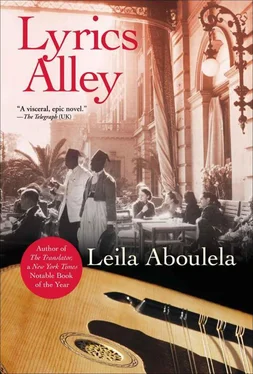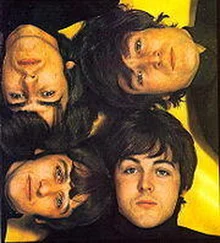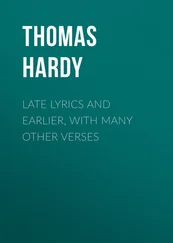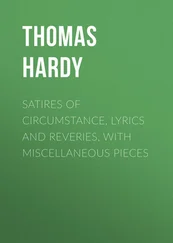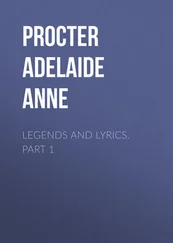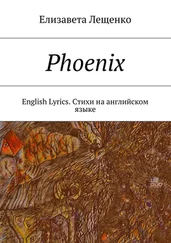Leila Aboulela - Lyrics Alley
Здесь есть возможность читать онлайн «Leila Aboulela - Lyrics Alley» весь текст электронной книги совершенно бесплатно (целиком полную версию без сокращений). В некоторых случаях можно слушать аудио, скачать через торрент в формате fb2 и присутствует краткое содержание. Год выпуска: 2011, Издательство: Grove Press, Жанр: Современная проза, на английском языке. Описание произведения, (предисловие) а так же отзывы посетителей доступны на портале библиотеки ЛибКат.
- Название:Lyrics Alley
- Автор:
- Издательство:Grove Press
- Жанр:
- Год:2011
- ISBN:нет данных
- Рейтинг книги:5 / 5. Голосов: 1
-
Избранное:Добавить в избранное
- Отзывы:
-
Ваша оценка:
- 100
- 1
- 2
- 3
- 4
- 5
Lyrics Alley: краткое содержание, описание и аннотация
Предлагаем к чтению аннотацию, описание, краткое содержание или предисловие (зависит от того, что написал сам автор книги «Lyrics Alley»). Если вы не нашли необходимую информацию о книге — напишите в комментариях, мы постараемся отыскать её.
Lyrics Alley — читать онлайн бесплатно полную книгу (весь текст) целиком
Ниже представлен текст книги, разбитый по страницам. Система сохранения места последней прочитанной страницы, позволяет с удобством читать онлайн бесплатно книгу «Lyrics Alley», без необходимости каждый раз заново искать на чём Вы остановились. Поставьте закладку, и сможете в любой момент перейти на страницу, на которой закончили чтение.
Интервал:
Закладка:
‘Who is Umdurman?’ laughed Fatma.
‘Shush and listen.’ Soraya understood who Umdurman was.
‘ I am Umdurman. I am the pearl that adorns my land. I am the one who nurtured you, and for you, my son, will ransom myself. I am Umdurman, the Nile watered me and sought my side. I am the one on the western bank and Gordon’s head was my dowry. I am Umdurman, I am this nation. I am your tongue and your oasis …’
The three of them were stirred by the patriotic sentiments that the poem aroused. Even though the ties of the family to Egypt were strong and, politically, Uncle Mahmoud supported the union with Egypt, the younger generation carried a strong sense of their Sudanese belonging. Their glittering future was here, here in this southern land where the potential was as huge and as mysterious as the darkness of its nights.
‘It’s a beautiful poem,’ Soraya said.
She wanted to cry because Nur had heard the words from the poet’s mouth and she hadn’t, and because exciting, transforming things would happen and she would only hear about them and not be part of them, she who wanted to be at the centre of everything.
‘It should become a song,’ Fatma said, ‘and then it would be easy to memorise. Even children could memorise it.’
‘It’s beautiful,’ Soraya repeated.
‘I wish I had composed it myself,’ said Nur.
Soraya smiled. ‘If you had written it or someone else did, what does it matter? The important thing is that it exists.’
‘But it isn’t mine.’
She remembered how, when he was younger, before going to Victoria College, he had loved to sing. He would sing at every family occasion, memorising poems and popular tunes, his voice sweet and hopeful. But when he sang at a wedding outside the family, the wrath of his elders descended upon him. He was shaming the Abuzeid family, they said, standing in front of strangers like a common singer; next, the audience would be tipping him! Soraya remembered him crying, when, as a consequence, his father punished him and forbade him from going out. She remembered his confusion and broken spirit, crying the way boys cry, with a lot of pain and little noise.
She said, gently, now, ‘You will write your own poem. And it will be even better.’
‘Come on you two, let’s go,’ said Fatma, standing up.
‘Wait, I have something to give Soraya.’ He took out a bulky packet from his pocket and opened it.
Fatma laughed as Soraya reached out her hand for the pair of spectacles.
‘Where did you get them from?’ Her voice was withdrawn because of Fatma’s laugh and because Nur had acknowledged the imperfection in her.
‘I had them made for you. Of course, you need to be tested yourself and you need a prescription that is especially for you but this will help for the time being.’ For the time being. Until they got married and she would be free of her father’s conservative restrictions. ‘Try them,’ Nur said.
‘No.’
‘Why not? Yalla!’ Fatma adjusted her to be, impatient to leave the garden and go back to the hoash.
‘Later,’ said Soraya. ‘When I am alone I will try them on.’ She touched the thick black rims. Later, in front of a mirror, she would try them on.
‘She doesn’t want you to see her wearing them,’ said Fatma.
‘Keep quiet!’ said Soraya.
‘Soraya’s pretty,’ Nur said to Fatma. ‘The prettiest girl.’ Fatma folded her arms and raised her eyebrows. He looked at Soraya, who sat with her head bowed, spectacles on her lap. ‘Nothing can take away from her prettiness. And actually, the glass of the spectacles is going to make her eyes look even wider.’
Soraya could not help but smile.
‘Yalla, try them.’ His voice was warm with encouragement. ‘Give them to me.’
He put them on her, his fingers playfully pinching her earlobes and brushing against her hair. The new heaviness on her face and a grip on her nose; everything seemed a step away and yet so much clearer. On the peripheries, sideways down and up, the familiar fuzziness, but in the centre everything was in focus. She looked across the garden and saw the bougainvillea, the camphor tree and closer, on the veranda, bright and clear, the huge pots of flowers. She looked up, and the stars were distinct and piercing. Oh, how she had missed this clarity! She turned and looked at Nur. He had a cut on his chin from shaving but she knew that smile and glowing eyes; that pride in her.
She turned to look at Fatma and asked, ‘How do I look?’
‘Ugly,’ said her sister, ‘plain ugly.’
The three of them were laughing as they walked back to the hoash. They could hear Waheeba’s voice call out.
‘Nur! Nur, your teacher is here.’
‘I can smell the fish.’ Fatma started to quicken her pace. ‘She’s started frying and I’m not there to help her!’
II
Allah Almighty will say on the Day of Resurrection: O Child of Adam, I fell ill and you did not visit me. .
As he walked the dark narrow alleyways of Umdurman, on his way to the lighted saraya of Mahmoud Bey Abuzeid, Ustaz Badr assigned himself the task of reciting every verse from the Qur’an and every Hadith which pertained to the subject of illness. There were three benefits to this exercise. One, it refreshed his memory; two, it soothed the irritation triggered by the letter he had received this morning and three, it stopped his mind from wandering to the form and voice of his luscious wife, Hanniyah. He considered his obsessive desire for her unbecoming in a man of his profession and maturity. Their marriage was a constant challenge for him to maintain his dignity, as she devoted her talents — or so it seemed to him — to ruffle, tease, and provoke him. His ruse against himself worked, for when he reached the Qudsi Hadith that promised him that he would find his Lord in the company of the ill, his concentration was whole and his senses were steady to the extent that the words penetrated his being and tears filled his eyes.
Badr’s eyes were large and protruding. In his spare, energetic body they looked a little out of proportion, as if they were a muscle overdeveloped from consistent training. And he had trained his eyes. He had trained them to read without effort, to suck in information, and then to act as a valve, preserving everything in his memory, keeping knowledge within and then letting it out at will, smoothly and professionally. Studious from an early age, he had been the only one of his brothers to complete secondary school and graduate from Teacher’s College. Now he was on a secondment to Sudan, to teach those less educated than himself, who needed his skills and were ready to pay extra money for his time. He was also being sought, more and more, to give lucrative private lessons. It was an opportunity to make the kind of savings he would never have made had he stayed in Upper Egypt.
‘Doors have opened for you in this country,’ he told himself. ‘Thank your Lord and kiss the palm and back of your hand.’
Ahead was Mahmoud Bey’s mansion, with the grounds and all three storeys lit up. It was elegant because of its fine design, and splendid because it decorated the entrance to Umdurman, positioned in such a way as if it guarded the secrets of this city so close to the Nile. Five fine motor cars were lined up on the broad asphalt road coming from Khartoum. They intimidated Badr, and so he bypassed the main entrance. He also hesitated in front of the gate that led to Madame Nabilah’s extensive quarters. When he came in the afternoon to give her two young children their lessons, he usually banged on this gate, but tonight it was locked and this section of the saraya looked dark and unwelcoming. He therefore headed down the back alley, towards the gate from which he was used to entering, which was known as the women’s entrance, but was also used by intimate family members, tradesmen, beggars and servants.
Читать дальшеИнтервал:
Закладка:
Похожие книги на «Lyrics Alley»
Представляем Вашему вниманию похожие книги на «Lyrics Alley» списком для выбора. Мы отобрали схожую по названию и смыслу литературу в надежде предоставить читателям больше вариантов отыскать новые, интересные, ещё непрочитанные произведения.
Обсуждение, отзывы о книге «Lyrics Alley» и просто собственные мнения читателей. Оставьте ваши комментарии, напишите, что Вы думаете о произведении, его смысле или главных героях. Укажите что конкретно понравилось, а что нет, и почему Вы так считаете.
